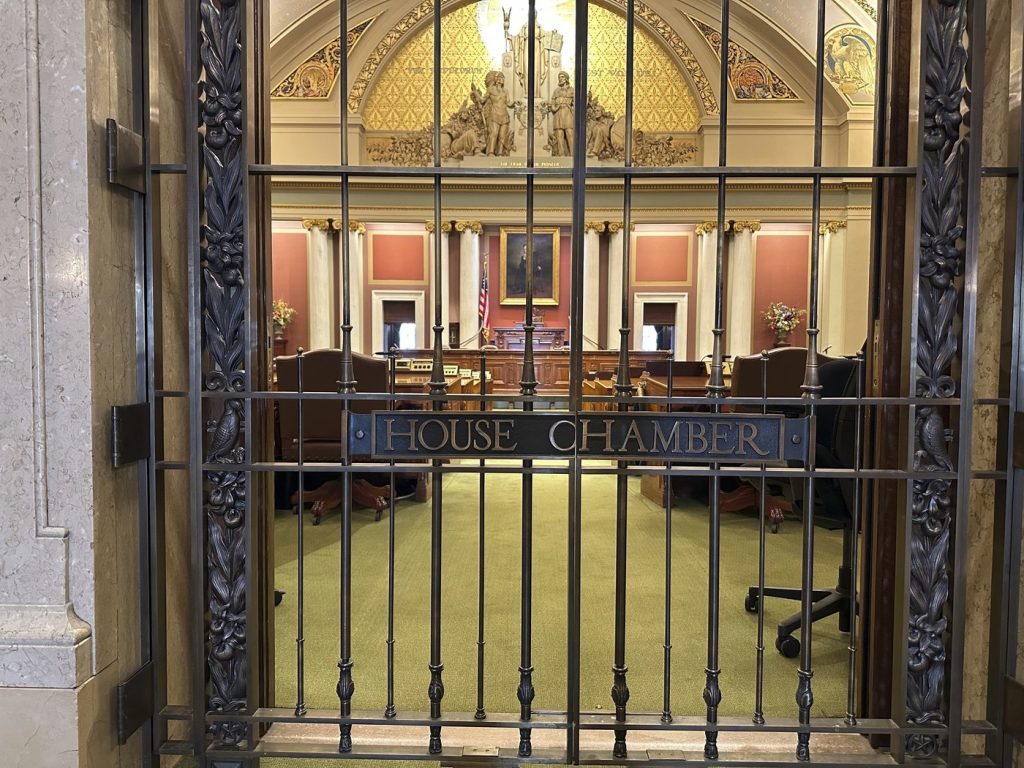ST. PAUL, Minn. (AP) — On Tuesday, January 13, 2025, leaders in Minnesota were engaged in urgent discussions to prevent a potential boycott by House Democrats as the opening day of the legislative session approached. The Democrats were determined to resist the possibility of Republicans using their temporary majority to forward their legislative agenda following a tied House from the November elections, where each party had 67 members. The political landscape was complicated by a recent court ruling that favored Democrats, potentially shifting the dynamics of the session.
A judge's decision earlier that same day rejected a Republican attempt to mandate a special election in a close race won by Democratic incumbent Rep. Brad Tabke from Shakopee, where he emerged victorious by a marginal 14 votes. This ruling prevented Republicans from leveraging their power to refuse to seat him, thus deflating some of their plans to assert dominance in the House.
The state House officially ended up tied at 67-67 following the elections, with initial discussions leading to a power-sharing agreement to honor this balance. However, complications arose when another judge declared that a newly elected Democrat did not meet residency requirements for his heavily Democratic district, handing Republicans a narrow 67-66 majority until a special election occurs in two weeks, allowing them to capitalize on their advantage during this brief period.
Leaders from both parties, including Democratic former Speaker Melissa Hortman and Republican former Minority Leader Lisa Demuth, convened for extensive negotiations to resolve the impasse before the scheduled noon session. Hortman emphasized her willingness to propose a new power-sharing plan that would allow Demuth to be speaker, albeit with the expectation that the tie would be restored following the upcoming special election. She criticized the Republicans' tactics, stating, “It’s outrageous that they’re trying to use this two-week, one-vote edge that they have to potentially kick out newly elected members and to try to seize control for two years.”
Demuth expressed her openness to dialogue with Hortman while maintaining a firm stance on her party's position. “I would absolutely be open to having a conversation with Rep. Hortman,” she affirmed in an interview.
According to Minnesota law, the state’s Secretary of State is responsible for convening the House at the beginning of a session, determining quorum requirements, and facilitating the election of a speaker. Democratic Secretary of State Steve Simon stated that the constitution requires 68 members to constitute a quorum. Without this number, he could only call for attendance and subsequently adjourn the House until a quorum was achieved. Conversely, Republicans argued for a quorum of just 67 members due to the vacant seat, threatening to proceed without Simon's oversight.
This clash of procedural interpretations appeared to lead the Minnesota House into uncharted territory, with a possible boycott planned by Democrats. Such tactics have been mirrored in other states, notably when Wisconsin Democrats went into hiding in 2011 to counter Republican measures on public employee union rights, or recent Oregon Republican walkouts related to abortion and gun rights legislation. Similar confrontations have been noted across different states, underscoring the high-stakes political maneuvering at play in Minnesota.
While the House engaged in intense negotiations, the atmosphere was notably different in the state Senate, which was also tied at 33-33. However, Democrats were expected to regain a slight majority with a special election set for January 28 to fill a recently vacated seat. In contrast to the House chaos, Senate leaders successfully brokered a power-sharing agreement, highlighting a more collaborative approach in that chamber.











